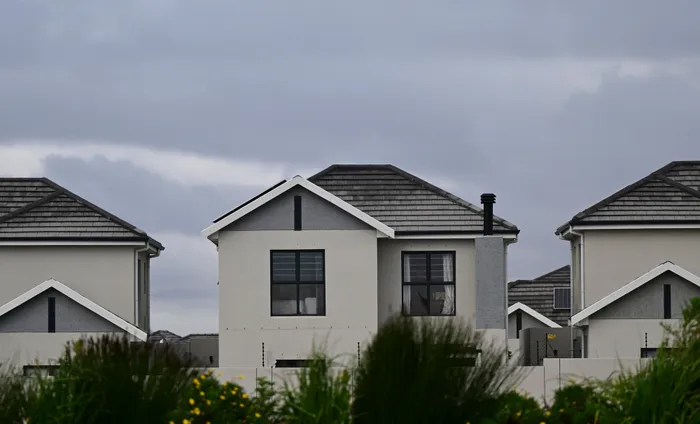
Lightstone's 2025 house price forecast shows modest growth, with the House Price Index (HPI) expected to reach 2.5% under the most likely mid-road scenario.
Image: File
According to the Budget 3.0 delivered by Finance Minister Enoch Godongwana on Wednesday, local government will receive R176.8 billion in 2025/26, maintaining a 9.5% share of nationally raised revenue.
Siphamandla Mkhwanazi, a senior economist at FNB, said this is crucial for service delivery and urban management, both of which directly impact property values and investor confidence.
“That said, ongoing issues with municipal finances and accountability continue to pose a risk. The budget notes a stronger focus on improving municipal performance through Operation Vulindlela 2.0, which we are also keeping a close eye on,” Mkhwanazi said.
He added that the government has committed over R1 trillion to infrastructure investment over the medium term, with R280.4 billion earmarked for community development, including R58 billion for housing, water, and electrification.
He added that this is encouraging for the property sector, as infrastructure is essential for new developments. However, Mkhwanazi said about R13 billion has been scaled back due to fiscal pressures, which could then delay project rollouts.
The senior economist remarked that the good news for the sector was that the budget retained the 10% increase in the transfer duty threshold, a measure introduced earlier in the year to support housing affordability.
“This is a welcome relief for first-time buyers and middle-income households, helping to stimulate demand in the residential market.”
Mkhwanazi said the re-tabling of Budget 3.0 reflected the fiscal and political complexity of South Africa’s current environment.
He said that while the budget maintains a commitment to fiscal consolidation and infrastructure investment, it also reveals the constraints faced by the government in stimulating growth and supporting key sectors like property.
“With Gross Domestic Product (GDP) growth revised down to 1.4% for 2025 (in line with our forecast of 1.3%) and debt-service costs consuming 22 cents of every rand collected, the macroeconomic environment remains challenging.
"Higher borrowing costs and constrained consumer spending could dampen property market activity, particularly in the commercial and low-end residential segments,” he said.
The bank’s senior economist said this budget emphasised the need to crowd in private sector investment for infrastructure delivery.
“This presents opportunities for public-private partnerships in housing and urban development, but success will depend on the speed and credibility of implementation,” Mkhwanazi said.
Professor Waldo Krugell, an economist from the School of Economic Sciences at the North-West University(NWU), said the government remains committed to its fiscal targets, including achieving a primary surplus, stabilising debt at a peak of 77.4% of GDP in 2025/26, and prioritising infrastructure spending.
“However, the reversal of the VAT increase and a downward revision of the growth forecast from 1.9% to 1.4% have reduced expected revenue. As a result, Treasury has had to cut R53bn in planned spending over the next three years.
"This includes no provision for the Covid-19 relief grant beyond 2025, cuts to frontline services, and reduced infrastructure allocations.
"To partially offset the revenue loss, the only new tax announced is a modest increase in the general fuel levy, expected to raise R3.5bn in 2025/26. Broader reforms to the budget process and state spending are under consideration,” Krugell said.
Ricardo Smith, the Chief Investment Officer at Absa Investments, said in the latest South African budget, the finance minister has reaffirmed the commitment to fiscal consolidation.
“However, a downward revision in the country’s economic growth outlook-driven by rising geopolitical tensions-and the reversal of the highly contested VAT increase have led to a forecast of a wider budget deficit over the next three years.
"As a result, the debt-to-GDP ratio is now expected to peak at a higher level and remain elevated for longer than previously anticipated. To mitigate some of these pressures, the government has reduced spending on social benefits compared to the prior budget, while aiming to preserve funding for economic development initiatives.
"Despite these challenges, the minister still expects debt levels to stabilise this year, even in the face of fiscal slippage," Smith said.
Related Topics:
